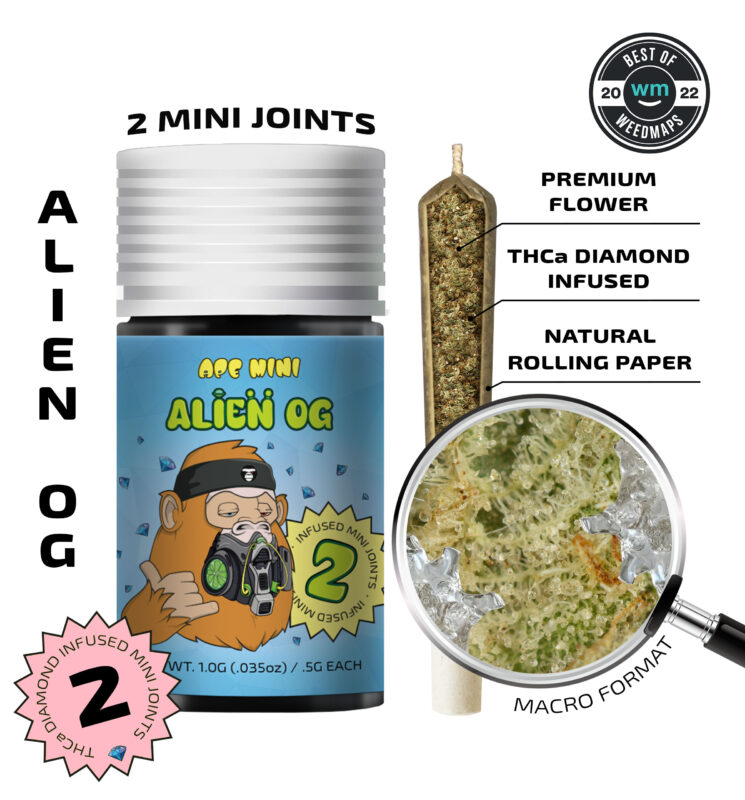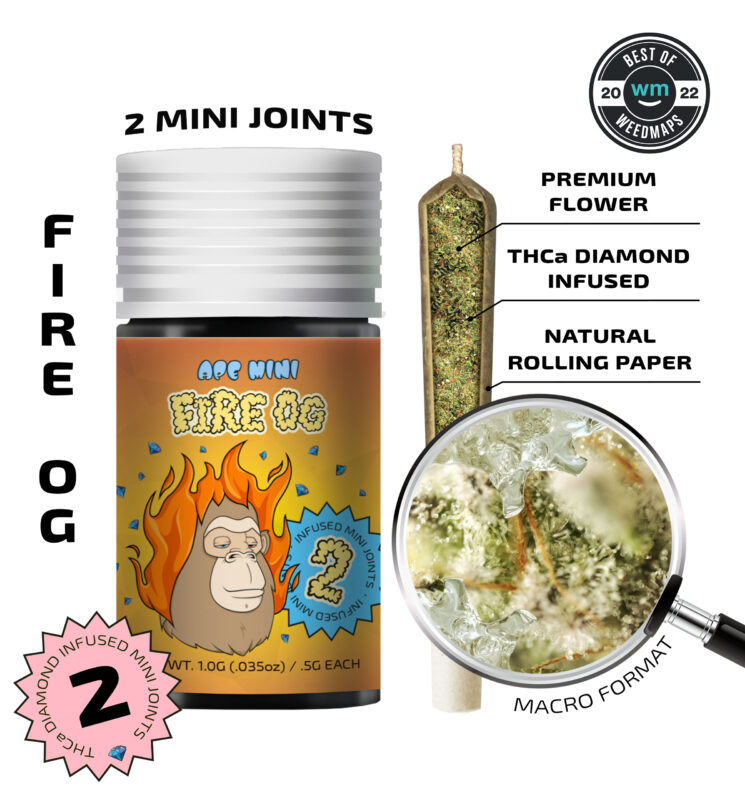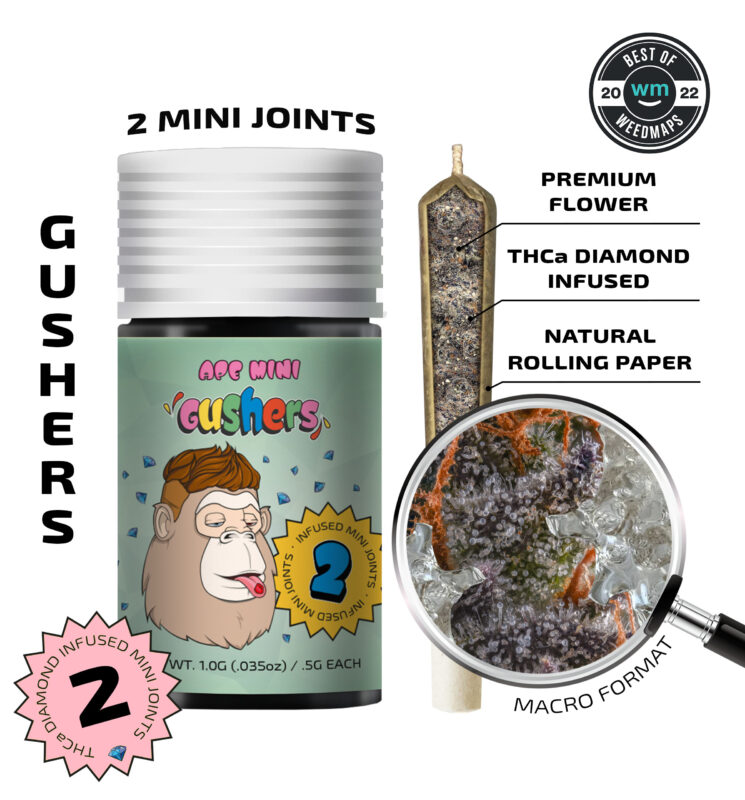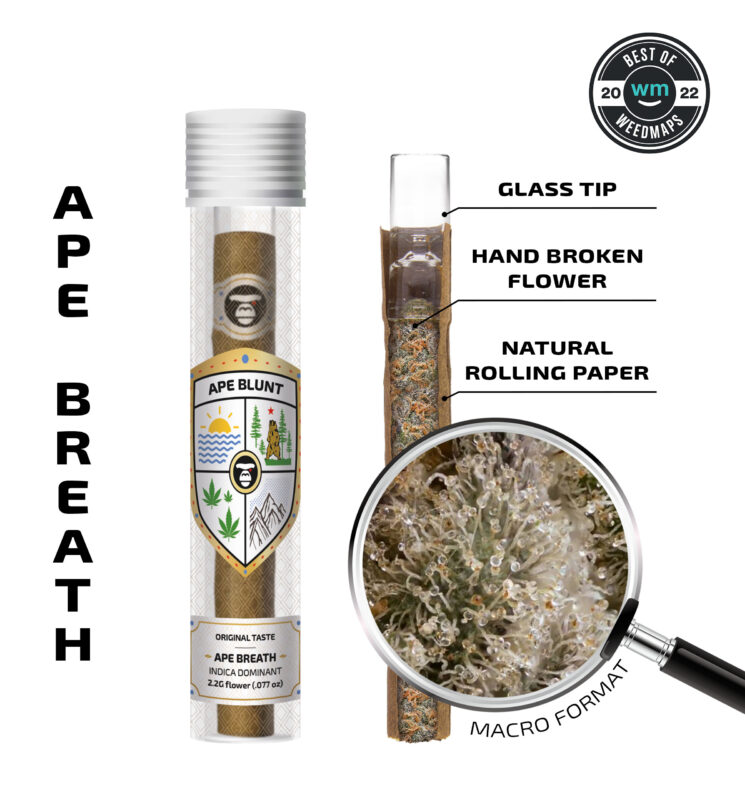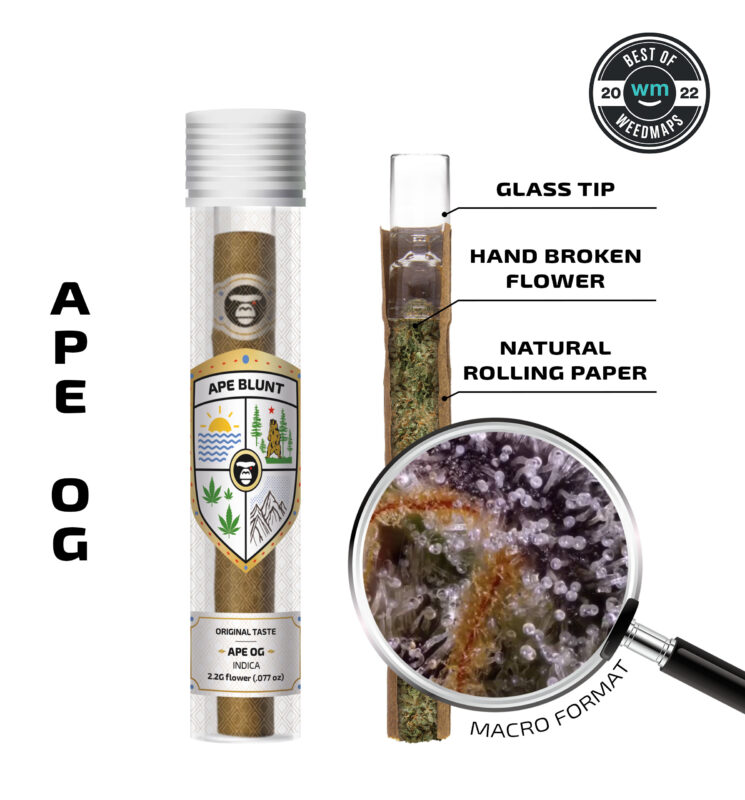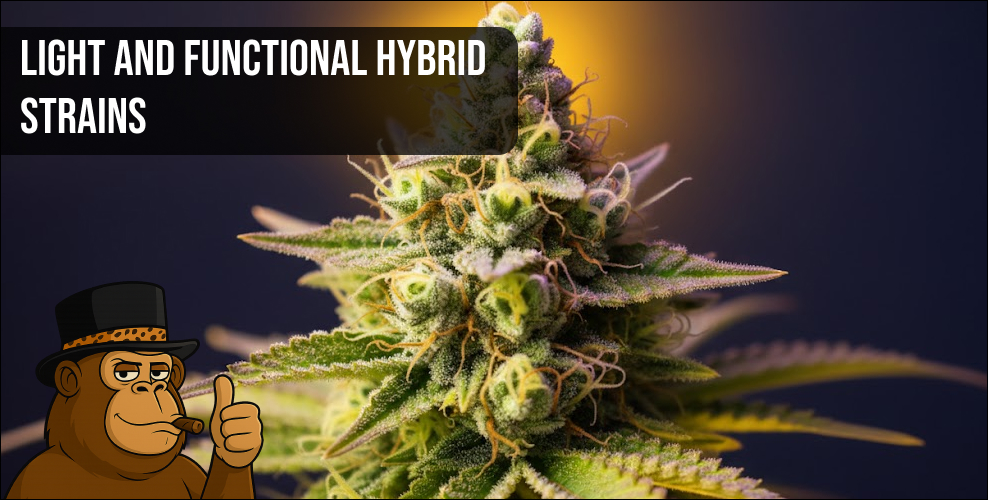Cannabinoids and Immunity.
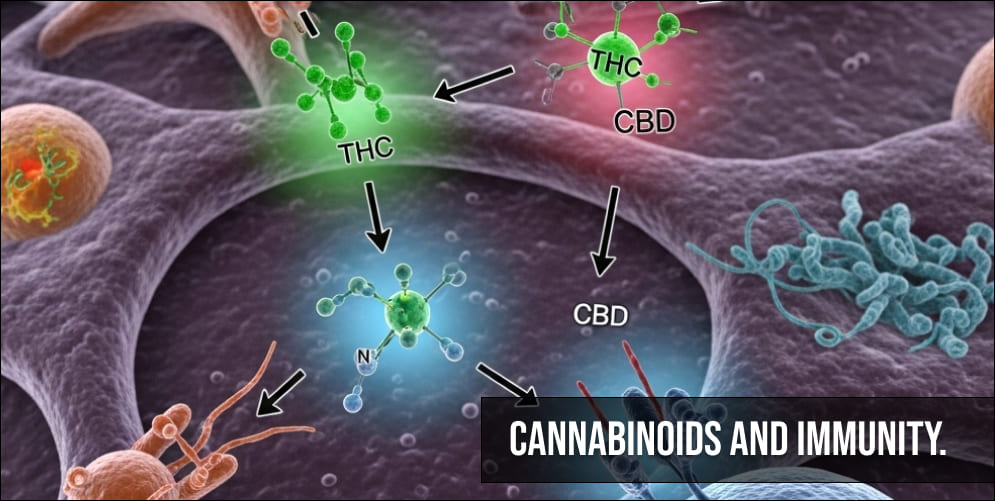
When we talk about cannabinoids, most people’s minds immediately jump to THC and its psychoactive “tricks.” But that’s just one of many players on a large team. In reality, the cannabinoid family is an entire army of hundreds of chemical compounds found in the cannabis plant. Besides the famous THC, there’s also CBD, CBN, CBG, and a whole bunch of others, each with its own character and superpower. They don’t just hang around idly—these molecules engage in a dialogue with our endocannabinoid system (ECS). Imagine the ECS as your body’s personal conductor, maintaining order in everything from mood and sleep to appetite and… yes, immunity.
So, cannabinoids are the notes that help this conductor create a perfect harmony. If something goes wrong in the orchestra and someone hits a wrong note, cannabinoids can help tune the instrument. They don’t just turn the immune response on or off; they regulate it with a fine touch, like an experienced sound engineer. Their unique ability is to not interfere bluntly but to find a golden mean, helping the body work like a well-oiled machine. This is the core of how cannabinoids and immunity interact.
- Cannabinoids are not just THC but a whole constellation of compounds with different properties.
- Their main “trick” is the ability to regulate subtly, not just stimulate or suppress the immune system.
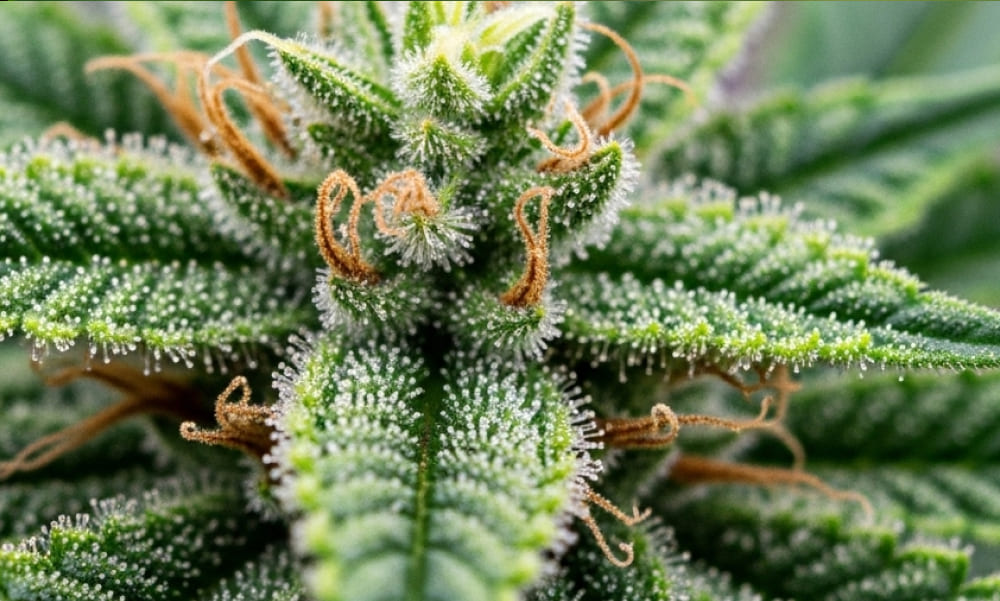
THC: Not Just a “High,” but a Diplomat for Your Immune System
We tend to think of THC (tetrahydrocannabinol) as the “fun” component, but its role in the immune system is far more interesting. This compound acts like a true diplomat who can smooth out rough edges or stir things up if needed. Its effect is based on its interaction with CB1 and CB2 receptors, which are found in large numbers on our immune cells. When THC binds to CB2 receptors, it can reduce the production of inflammatory cytokines. This is especially relevant when your immune system, like an army gone rogue, starts attacking your own tissues in autoimmune diseases, highlighting a key aspect of cannabinoids and immunity.
Imagine your immune system is an army. In autoimmune diseases, it goes haywire and starts shooting at its own. In this situation, THC acts as a peacemaker, calming the rebellious soldiers and getting them back in line. But don’t be too quick to conclude that THC is always suppressive. In some cases, such as in the fight against cancer, it can become a “secret agent” and stimulate the self-destruction of cancer cells. Its ability to adapt to the situation makes it a unique tool that can be useful in various scenarios.
- THC acts through CB1 and CB2 receptors, which are present on immune cells, influencing the relationship between cannabinoids and immunity.
- It can reduce inflammation, which is very valuable in autoimmune issues.
CBD: A Peacemaker That Works Without the Fuss
If THC is the diplomat, then CBD (cannabidiol) is the quiet but highly effective peacemaker. It doesn’t cause a psychoactive effect, which makes it a favorite among a wide audience. But its superpower is its powerful anti-inflammatory action. It doesn’t bind directly to CB1 and CB2 receptors like its more famous sibling. Instead, it acts on other receptors, influencing the production of cytokines—the proteins that manage inflammation. CBD is like a wise manager who quashes a dispute, reducing the number of “agitators” and encouraging those who are for peace. This highlights the unique role of cannabinoids and immunity.
Think of inflammation as a fire in your body. If it’s small, it’s useful—it helps clear out debris. But if it flares up, it can destroy everything around it. CBD is your personal firefighter who doesn’t just douse the fire with water but specifically targets the ignition points without affecting healthy cells. This makes it an indispensable helper for chronic inflammatory conditions like arthritis or Crohn’s disease. Its ability to work in a team with other cannabinoids, amplifying their effects, is another bonus, making it a valuable component of full-spectrum extracts.
- It modulates cytokine production to keep inflammation under control.
- It is perfect for managing chronic inflammatory diseases.

CBG and CBN: The “Mother” and “Night Watchman” of the Immune System
If THC and CBD are A-list celebrities, then CBG (cannabigerol) and CBN (cannabinol) are equally important supporting players. CBG is often called the “mother of all cannabinoids” because it’s the precursor to both THC and CBD. But CBG is a star in its own right: it has potent anti-inflammatory and even antibacterial properties. Imagine it’s your personal “foreman” who keeps the construction site in order and prevents infections from running rampant. As for CBN, which appears as THC breaks down, it’s more like a “night watchman.” It’s often associated with a sedative effect but also helps regulate the immune response, maintaining order while you sleep. This is another fascinating aspect of cannabinoids and immunity.
These cannabinoids may not be household names, but their contribution is invaluable. They work in synergy, creating what’s known as the “entourage effect.” This is when all the components of the plant—cannabinoids, terpenes, and flavonoids—work together and amplify each other’s effects. So, when you see a full-spectrum extract, know that its effectiveness is due not only to the stars but also to these modest but very important team players. Don’t underestimate them—they are true team players.
- CBN is the “night watchman” that helps you calm down and regulates immunity.
- Together, they create the “entourage effect,” amplifying each other’s benefits in the context of cannabinoids and immunity.
The Endocannabinoid System: Your Personal “Chief Engineer”
We’ve mentioned the ECS before, but let’s take a closer look at it. It’s not just a collection of receptors; it’s a complex system that maintains homeostasis—the body’s internal balance. It consists of two types of receptors (CB1 and CB2), our own cannabinoids (like anandamide and 2-AG), and the enzymes that break them down. CB1 receptors are the “brain center,” located in the central nervous system, while CB2 are the “field crew,” found in immune cells and tissues like the spleen. When cannabinoids, both internal and external, bind to these receptors, they send signals to regulate various functions.
Imagine your ECS is the chief engineer at a factory. If there’s a breakdown, they immediately dispatch a repair crew to fix it. When inflammation occurs in the body, the ECS is activated to put it out. The cannabinoids we get from the outside can be excellent assistants to this engineer. They don’t just interfere with the system; they support it, helping the body to heal itself. This is why it’s so important to understand how these compounds interact with our bodies—they aren’t a magic pill but rather a powerful catalyst that helps your body operate at full capacity.
- It consists of receptors, endogenous cannabinoids, and enzymes.
- Cannabinoids help this system work more effectively, keeping it in tune.

Autoimmune Diseases and Cannabinoids: Taming the “Internal Enemy”
Autoimmune diseases are a modern scourge, where your own immune system, like a rebellious squad, starts attacking healthy cells. It’s like your army declaring war on your own home. Cannabinoids, thanks to their unique properties, can be the one to tame this rebellion. As we’ve said, THC and CBD can reduce the production of pro-inflammatory cytokines and “retune” immune cells so they stop shooting at their own. Their action is not about completely suppressing the immune system but about “calming” it down so it starts working correctly again.
Take, for example, multiple sclerosis, rheumatoid arthritis, or Crohn’s disease. In all these cases, inflammation is the main villain. Cannabinoids can help quell it. For instance, in multiple sclerosis, they can not only reduce inflammation in the nervous system but also relieve pain and spasms. Of course, they aren’t a magic wand, and they won’t cure these diseases. But they can significantly improve a patient’s quality of life by reducing symptoms and helping the body keep inflammation under control. This is a powerful tool that can be part of a comprehensive therapy.
- They can reduce inflammation and alleviate unpleasant symptoms like pain.
- They are not a cure, but rather a valuable tool for improving patients’ quality of life.
- How to choose between Indica and Hybrid Strain?
- Edibles and Microdosing: The Smart Way
- Animal Cookies Strain
Cannabinoids and Infections: Two Sides of the Same Coin
When it comes to fighting infections, things get a bit more complicated. On one hand, some cannabinoids can act as natural antibiotics. For example, research shows that CBG can be effective against antibiotic-resistant bacteria like MRSA. That’s pretty cool, of course. On the other hand, their ability to influence immunity can be a double-edged sword. If your immune system is already weak, cannabinoids could suppress it even further, which can be dangerous in serious infections.
Imagine your immune system is a border guard that keeps enemies out of your country. When you get sick, it enters the fight. Cannabinoids can be both “reinforcements” and a “neutral mediator.” In the case of bacteria, they can act as an antibacterial weapon. But with viruses, their action is more subtle. They can reduce the so-called “cytokine storm”—an excessive immune reaction that can be dangerous to the body—but they can also weaken the immune response needed to fight the virus. So, a very careful approach is needed here, and you should never self-medicate, especially with serious infections.
- Some cannabinoids, like CBG, can have antibacterial properties, showing the versatility of cannabinoids and immunity.
- They can help in the fight against drug-resistant bacteria.
- Their use in infections requires caution and consultation with a specialist.
Conclusion: Prospects and Common Sense
As you can see, cannabinoids are not just THC and CBD. They are an entire team with unique abilities, and their effect on the immune system is much more complex than it seems. They don’t just push the “on” and “off” buttons but fine-tune the system to make it work like clockwork. This opens up huge opportunities for treating various diseases. But, like any powerful tool, it requires common sense and caution. Further research is needed to fully understand all their secrets and develop safe and effective treatments.
Most importantly, remember that this article is for informational purposes, not medical advice. If you want to use cannabinoids for treatment, be sure to consult with a qualified doctor. There are still many unknowns in the world of cannabis, and we learn something new every day about the relationship between cannabinoids and immunity. So, stay curious, take care of your health, and approach it with a smart mindset. After all, it’s your body, and you’re the boss.





